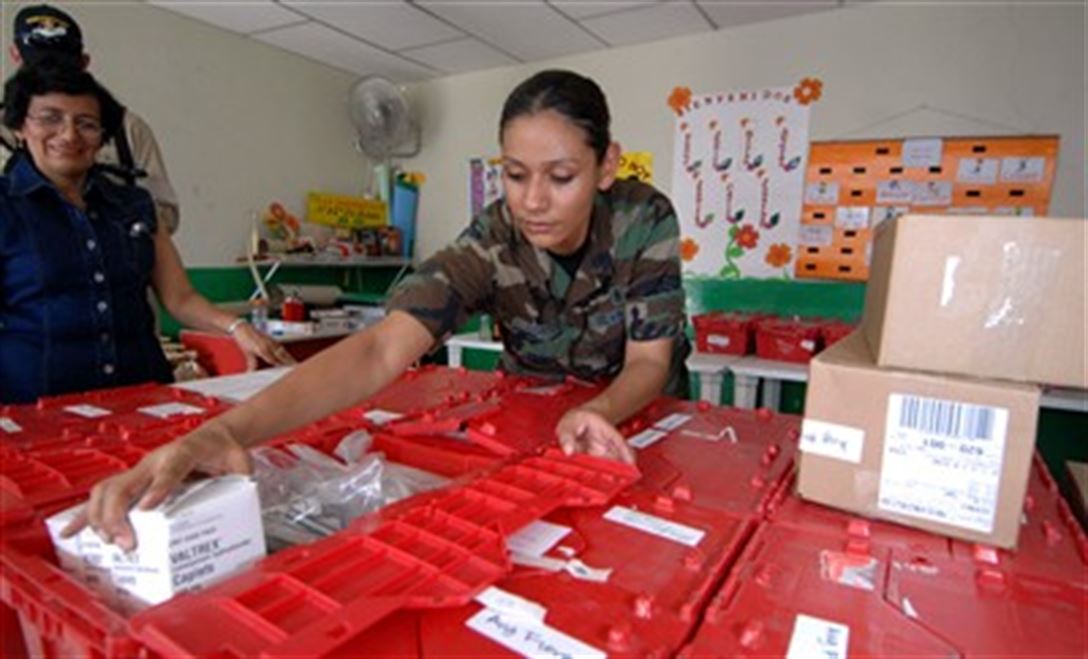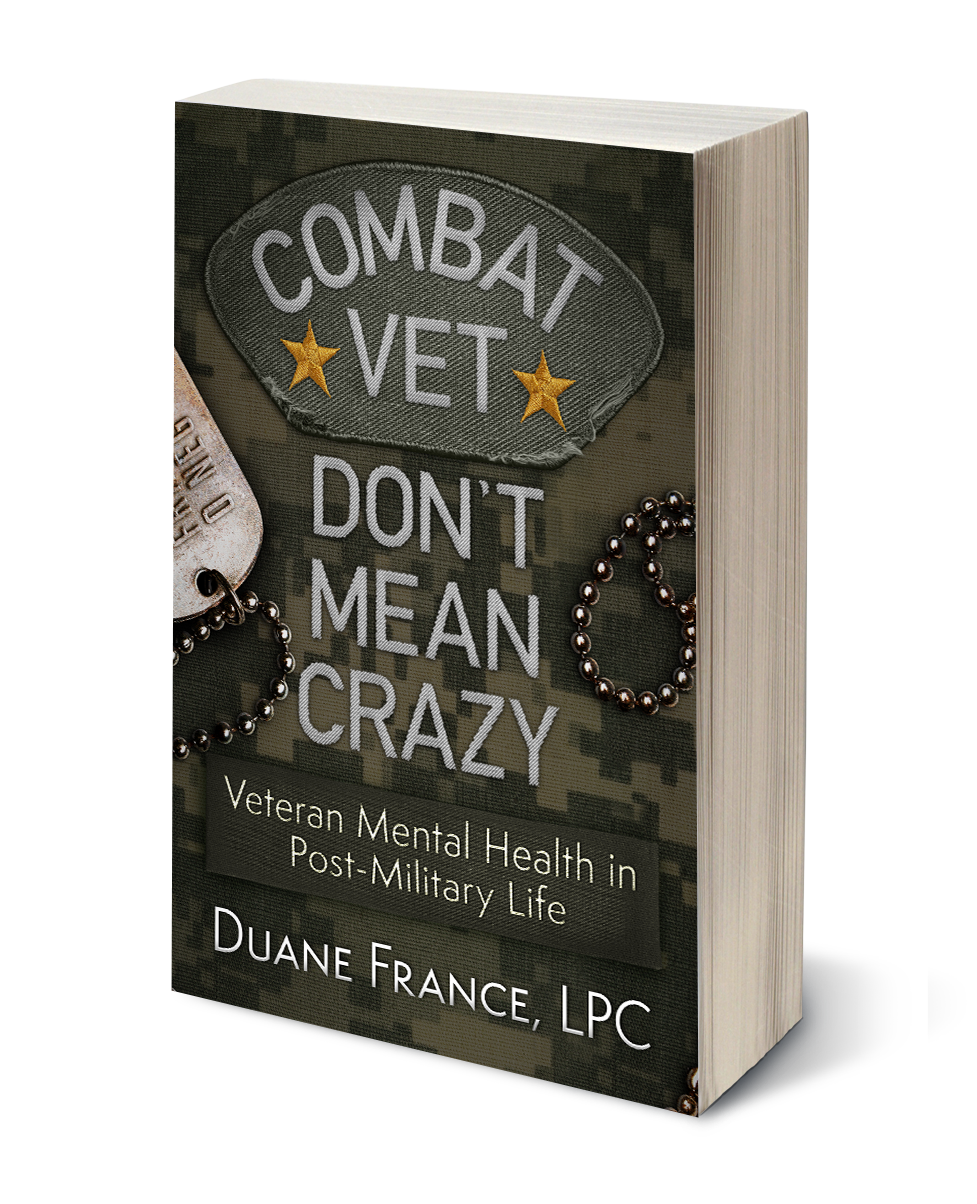
A U.S. Air Force laboratory technician attached to the hospital ship USNS Comfort unloads medical equipment in Manta, Ecuador, Aug. 15, 2007. DoD Photo.
When a service member returns from combat, or leaves the military, they take their experiences with them. In a recent episode of the Head Space and Timing podcast, Dr. Larry Decker said, “The lessons learned in combat are never forgotten.” It’s true; I know this both as a clinician and as someone who learned a thing or two while deployed to Iraq and Afghanistan. There are some things that we’re not going to forget, if we’re blessed enough to avoid dementia or Alzheimer’s disease.
There are things that many veterans do want to forget, though. I can’t count how many times I’ve had a veteran say to me, “I wish I could just flip a switch and get rid of this stuff. Or delete some files.” Of course, both veterans and mental health professionals know that it’s not that easy. Memories, especially traumatic memories, are encoded in our brains. The military training we internalize…push through the pain, advance at all costs, remove the emotion from the equation and accomplish the mission…get us in the habit of suppressing that which is uncomfortable. Unhelpful. Detrimental to achieving the objective.
So, in the absence of a switch or a system-wide reboot, we turn to other things to do that for us. Alcohol. Mind and mood altering medications. Relationships, some of which may not be helpful to us. Even behaviors that help us get through the day. The dangerous thing about these coping techniques: they really work. In the short run. The thing that gets us through the day-to-day problems, the cure to what ails us, becomes a curse in the long run.
Substance Use and Addiction
Addiction is a significant problem for service members and veterans. In an article titled Substance Use Disorders in Military and Veterans: Prevalence and Treatment Challenges, the authors identified that over 80% of Post-9/11 veterans diagnosed with a substance use disorder were also diagnosed with another mental health condition. This could include PTSD, Major Depressive Disorder, Generalized Anxiety Disorder, and others. One possible conclusion? In order to cope with the discomfort of traumatic stress reaction, depression, or anxiety, service members and veterans turn to substances. Alcohol turns things off for a while. Painkillers make us not feel, one pill to pick us up, another to calm us down.
Like I said before, they really work. They’re effective, or else we wouldn’t use them. I’ve spoken to many veterans who saw their drinking behavior change; before they deployed to combat, sure they drank. It was a social thing. Celebrating with the buddies. For many young service members, this is the first time that they’re away from home. Many college students experience the same thing. After deployments, however, many veterans found that they were drinking not to make themselves feel better, but to keep them from feeling worse.
Dysfunctional Relationships
Many veterans have heard this: “You’ve changed since you came back.” Of course; everyone changes as a result of their experiences, not just the veterans. The kids, the spouse, the parents and friends; everyone experienced a disruption in their lives that takes a toll. One of the things that isn’t taught in school is how to have a healthy relationship; we learn from watching others do it. We learn how to have romantic relationships from watching our parents, our friends, and (of course) portrayal of relationships in the media. On top of this, put how we manage relationships that have changed due to the pressures of military service.
Distancing ourselves from relationships is another behavior that works well in the short term; it does what we need it to do. It keeps us from having to answer questions. Avoiding others shields us from the disappointment and hurt that we see in someone else’s eyes, which sometimes reflects the disappointment we feel in ourselves. In another article, Military Related PTSD and Intimate Relationships, the authors identify that intimate relationship problems that go along with traumatic stress reaction can influence the course of recovery. Pushing loved ones away, isolating, terminating the relationship altogether; each of these works in the short term to resolve immediate discomfort, but cause significant challenges in the long term.
Maladaptive Thoughts and Behaviors
Maladaptive thoughts and behaviors are those that we engage in that keep us from being able to adjust to a particular situation. We engage in them because they work…in the short term…but they ultimately keep us from resolving the main issue we’re trying to deal with. This is contrasted with adaptive thoughts and behaviors, those that help us resolve the issues we’re facing and adjust to them. There are a number of maladaptive behaviors that service members engage in: avoidance, self harm, eating disorders. Engaging in substance use, as described above, is a maladaptive behavior. Again, these coping techniques tend to work, or we wouldn’t use them; however, they have long-term and dangerous consequences.
Thinking errors and cognitive distortions are equally damaging to us. In an article by Amy Morin, author of 13 Things Mentally Strong People Don’t Do, a list of common thinking errors include catastrophizing, over generalizing, mind reading, and others. Again, we engage in them because they meet a need. They calm us down (in a sense), they help us make sense of the world around us. The challenge, as always, is finding a balance between what we think and do that makes us feel better and what is most effective for us in the long term.
Seek a Long Term Cure
When we’re looking to address the challenges that come along with our military experiences, veterans can and should seek out those solutions that work well in both the short and long term. What is effective both now and in the future. That’s when we move from disruptive adaptation to our experiences to successful adaptation to our experiences. That is what leads to the post-military life we desire and deserve.
Do you want to help offset some of the costs of the Head Space and Timing Blog and Podcast? Want to show your appreciation and support? You can put some paper in the tip jar by going here or clicking the button below
Want to keep up with all of the Head Space and Timing content? Subscribe Here
 Want to learn more about veteran mental health? Check out the latest Head Space and Timing book,Combat Vet Don’t Mean Crazy: Veteran Mental Health in Post-Military Life
Want to learn more about veteran mental health? Check out the latest Head Space and Timing book,Combat Vet Don’t Mean Crazy: Veteran Mental Health in Post-Military Life. Check out what people are saying about it:
Overall ‘Combat Vet Don’t Mean Crazy’ is a very well written, thought-provoking book. As usual, SFC France did a fantastic job! Being a combat veteran myself who has served in both Iraq and Afghanistan, I feel there’s a lot of powerful information and tools in this book that you can put to use immediately – even as you’re reading this book. Definitely an excellent read on those days of rest and/or distress. – J.C.


